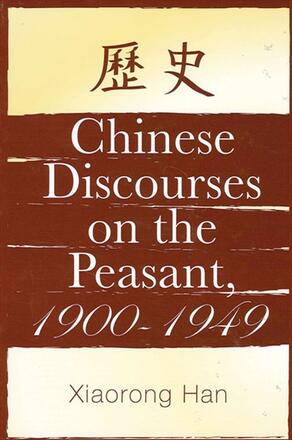
Chinese Discourses on the Peasant, 1900-1949
Alternative formats available from:
Shows how Chinese intellectuals with varying politics envisioned the peasantry and its role in changing society during the first half of the twentieth century.
Description
Xiaorong Han explores how Chinese intellectuals envisioned the peasantry and its role in changing society during the first half of the twentieth century. Politically motivated intellectuals, both Communist and non-Communist, believed that rural peasants and their villages would be at the heart of change during this long period of national crisis. Nevertheless, intellectuals saw themselves as the true shapers of change who would transform and use the peasantry. Han uses intellectuals' writings to provide a comprehensive look at their views of the peasantry. He shows how intellectuals with varying politics created images of the peasant—a supposed contemporary image and an ideal image of the peasant transformed for political ends, how intellectuals theorized on the nature of Chinese rural life, and how intellectuals conceived their own relationships with peasants.
Xiaorong Han is Assistant Professor of History at Butler University.